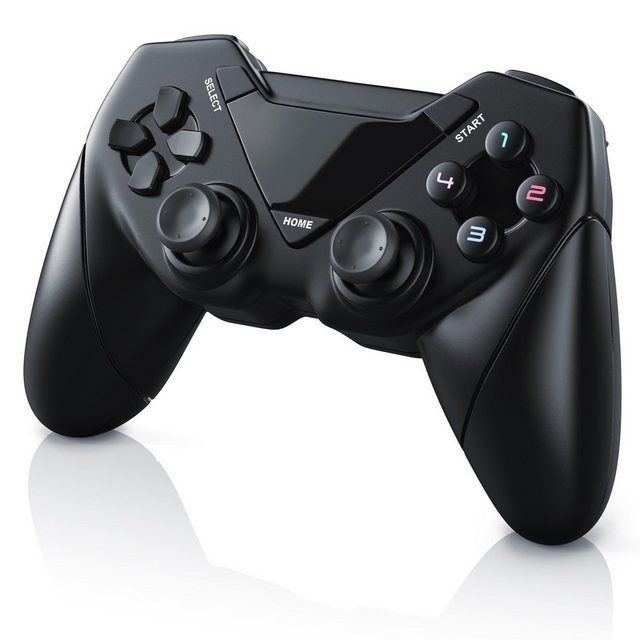A game controller is more than just a tool for input—it’s an essential piece of equipment that can directly influence your gaming performance and overall enjoyment. Whether you’re involved in the world of console gaming or playing on your PC, a quality game controller can make all the difference. In this blog, we’ll explore the different types of game controllers, the features to look for, and how to choose the best one for your gaming needs.
Why Is a Good Game Controller Important?
The right game controller can transform your gaming experience. Here’s why investing in a good controller is essential:
- Comfort and Ergonomics: A controller that feels comfortable in your hands during long gaming sessions can prevent strain and discomfort, allowing you to play for hours without issue.
- Precision: Precision is key, especially in competitive gaming. A responsive controller ensures that every input is registered accurately, whether you’re executing complex combos or performing split-second maneuvers.
- Customization: Many controllers offer customizable buttons, triggers, and profiles, allowing you to tailor the controller to your specific needs and playstyle.
- Versatility: A versatile game controller can be used across multiple platforms, such as consoles, PC, and mobile devices, giving you more value for your investment.
Types of Game Controllers
Not all game controllers are created equal. The type of controller you choose will depend on the platform you’re using and your personal preferences. Here’s a look at the most popular types:
- Wired Controllers Wired controllers connect directly to your console or PC via a USB cable, providing a stable and low-latency connection. While wired controllers lack the freedom of movement offered by wireless options, they are typically more affordable and reliable in terms of performance.
- Pros: Low input lag, no need for charging, reliable connection.
- Cons: Limited mobility due to the cable.
- Wireless Controllers Wireless controllers use Bluetooth or proprietary wireless technology to connect to your gaming device. These offer more freedom of movement, making them ideal for relaxed gaming sessions or when you want to move around without being tethered to your device.
- Pros: No cables, more mobility, clean setup.
- Cons: Requires charging, potential for signal interference.
- Gamepads Gamepads are the most common type of controller for consoles like PlayStation, Xbox, and Nintendo Switch. They offer a full set of buttons, including analog sticks, triggers, and a D-pad, giving players complete control over their game.
- Pros: Versatile, comfortable, ideal for most games.
- Cons: Can feel bulky for some users, limited precision for certain types of games.
- Arcade Sticks Arcade sticks are specialized controllers often used for fighting games or retro-style gaming. These controllers feature a joystick (analog or digital) and a set of buttons arranged like an arcade machine, making them ideal for complex inputs and combos.
- Pros: Excellent for fighting games, precise control.
- Cons: Large, not ideal for all types of games, typically more expensive.
- Custom Controllers Custom controllers allow for more personalization, both in terms of appearance and functionality. They can be designed to fit the player’s preferences in terms of button layout, stick sensitivity, and ergonomic design.
- Pros: Fully customizable to your liking, unique design.
- Cons: Higher cost, longer wait times for special orders.
Features to Look for in a Game Controller
When shopping for a game controller, there are several important features to consider that can affect your gameplay experience:
- Ergonomics and Comfort
Your controller should feel comfortable in your hands, especially for extended gaming sessions. Look for a controller with well-placed buttons, triggers, and grips that reduce hand fatigue. Consider controllers with textured grips or rubberized handles for better control and comfort. - Responsive Buttons and Triggers
The responsiveness of the buttons and triggers is crucial for fast-paced gaming, especially in competitive titles. Look for a controller that offers tactile feedback and consistent performance under pressure. Some controllers even offer trigger stops for quicker response times in action games. - Adjustable Sensitivity
For gamers who play competitive FPS or racing games, adjustable sensitivity (for analog sticks or triggers) can be a game-changer. Many advanced controllers offer customizable sensitivity profiles to fit your gaming style. - Wireless Connectivity
If you prefer to play without being tethered to your device, wireless controllers with Bluetooth or proprietary wireless technology offer freedom of movement. However, ensure the wireless connection is stable to avoid any lag or disconnects during gameplay. - Extra Buttons or Paddles
Some controllers come with additional paddles or customizable buttons that allow for more actions without taking your fingers off the analog sticks. These extra inputs can be helpful in fast-paced games or for players who want to execute complex maneuvers more efficiently. - Battery Life
For wireless controllers, the battery life is an important consideration. Opt for controllers with long-lasting batteries or those that allow for easy recharging. Some controllers come with built-in rechargeable batteries, while others require AA batteries.
Choosing the Right Game Controller for You
Selecting the right game controller depends on your gaming habits, the platform you’re using, and your personal preferences. Here are some tips to guide you:
- Platform: Ensure the controller is compatible with your gaming platform (PlayStation, Xbox, PC, or Switch). Some controllers are cross-platform, while others are platform-specific.
- Gaming Style: If you’re a competitive gamer, a controller with quick response times and customizable features might be ideal. For casual gamers, comfort and ease of use should take priority.
- Budget: Game controllers can vary greatly in price, from affordable basic models to premium controllers with advanced features. Determine your budget and look for a controller that offers the best features within that range.
- Durability: Look for controllers made from high-quality materials to withstand long hours of gaming. A durable controller ensures that you get the most out of your investment over time.

